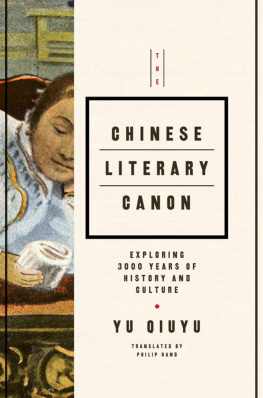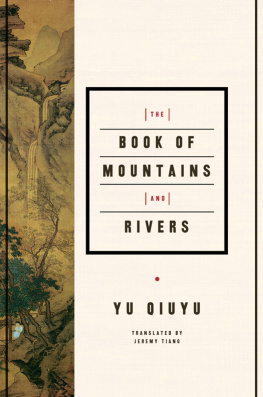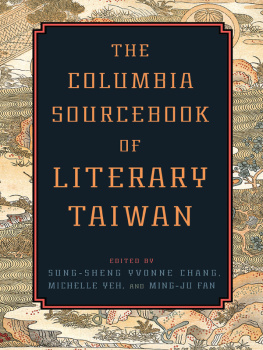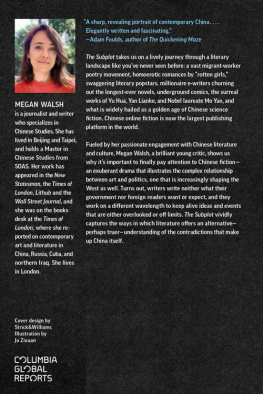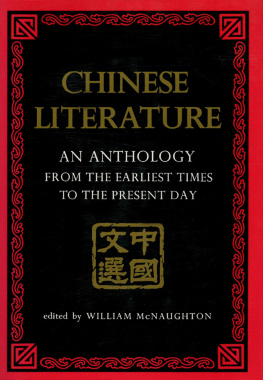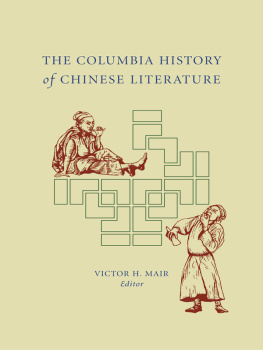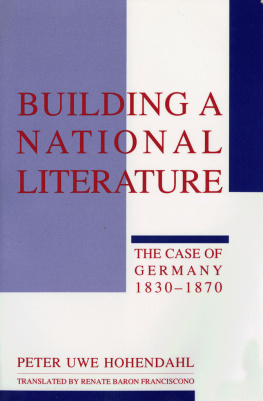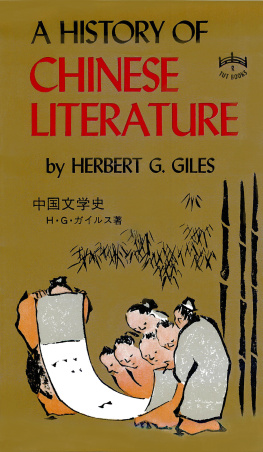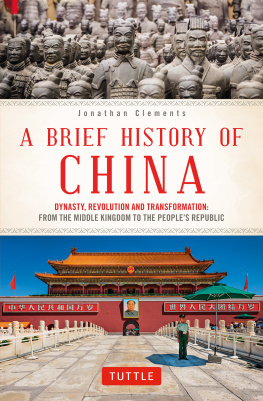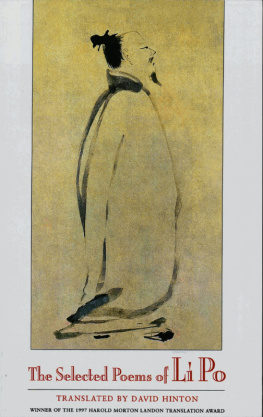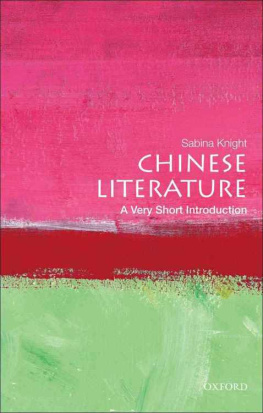The translation of Yu Qiuyus essays was an immensely rewarding but somewhat worrying process. It was not the difficulties of translation that made it so. In fact, Yus prose is marvelously lucid. The main problem lay in finding or creating suitable translations for his selections from literature, and here I benefited from the learned work of many scholars and poets who have given far more thought to those texts than I ever could.
Yu Qiuyu makes no attempt here to write a book of that type. In The Chinese Literary Canon he is a personable, knowledgeable guide; a curator and commentator on the canon; an opinionated reader and cheerleader for literature. He is a teacher. Methodically, patiently, lovingly, he presents to us a curriculum for reading. In our choice of title, we reflect Harold Blooms great paean to literature, The Western Canon, and Yu shares Blooms pedagogical concerns. He desires completeness, and so he is programmatic. But the systemic presentation of literature in historical sequence is belied by his joyful openness and eclecticism. While Yu makes no formal concession to the fashion for cross-disciplinary writing, his readings of the literature are informed by archaeology, history, philology, politics, and psychology. He reads with his whole heart, speaking directly to the authors of thousands of years ago, and they speak back. The Chinese title of this collection is Zhongguo Wenmai, a complex metaphor which means literally the pulse of Chinese literature, and in Yus hands, even the oldest writing pulses with life. It is my greatest hope that readers will not be disappointed by Yus choice not to hang his lifelong enjoyment of Chinas finest writers on a single Big Idea hook.
I am very grateful for the help and advice I received during the translation process from Igor de Rachewiltz, Brian Holton, Lucas Klein, and many others. Any errors which remain are mine alone.
CHAPTER ONE
The Canon
I
There is an arterial current that runs through Chinas millennia of written culture. Within its flow is all that is most vital and most beautiful in literature. Taken together, the works in this current are the Chinese Canon.
Up close, the flow and pulse of the Canon is difficult to discern. Only when we stand back and look with the benefit of distance does its broad sweep start to emerge, luminous and meandering. Looking back over the long flow of the Canon locates us in a vast landscape beneath vast skies. It awakens us to the cultural atmosphere in which our lives are always contained.
However, because it is both so inescapable and so intangible, the Canon breeds misconceptions. So, at the start of this book, we must first of all clarify some definitions and head off some of the most common diversions, lest they muddy the flow.
I. The Canon almost never comes from officially designated good taste.
II. The Canon is almost never among the most popular works.
III. The Canon is literature; it is not philosophy.
IV. The Canon is vitally important, but its volume is small.
V. The Canon was never a continuous tradition. It proceeded in fits and starts, and was often absent.
VI. The Canon often attracted other literature, but also repelled and rejected it.
Finding the Canon is a matter of subtraction. When researching the arts and literature, one should start with addition, and then move on to subtraction. Subtraction is the more important step, and the more difficult. When you subtract, you cut until you see sinew, until you expose the nerve. You cut until you are left with literature that pulses with life.
Subtraction is hard, because for centuries and centuries people lived in a state of constant cultural shortage. Any written word was worthy of respect; a text seemed like holy writ, and books inspired nothing short of awe. No one had the audacity to pick and choose among written words. Secondly, subtraction is hard, because those who do have the confidence to pick and choose may not use discrimination. Literary fashions tend to attract many more adherents than those few writers who are driven by the pulse of the Canon.
Those who would be boldly selective need sharp tools, but even those who hold such tools may find themselves cutting lonely trails. Gossips and armchair critics would not generally recognize a critical tool. Those who cut their own path do not have time to be critics, and this creates an inversion of status that means the Canon is often lonely and neglected. The Canon exists by virtue of its excellence.
There are many mechanisms for determining status in this world. The status of a Confucian patriarch traditionally depended on his civil service rank; for magnates, it is their bank balance; for doctors, their ability to cure; the status of celebrities is simply their fame. In literature, though, status is very different. Literary status has nothing to do with position, money, health or fame. It is determined purely by something that has no obvious measure. That something is taste.
Taste exists in other fields, of course, but may be ancillary. For literature, it is the only factor. Taste recognizes what is excellent, and excellence determines status and defines the Canon, but there are no clear signposts to guide us along the way. And that is where the trouble starts.
Looking around me today, I find that more and more people who have achieved success seem to want to use literature to demonstrate their quality, even to educate us. The results of these exercises are highly dubious. Some Confucian-minded businessmen desire to generate a corporate culture, and, to this end, force their employees to memorize very low-grade schoolboy classics. Television personalities expound on literary dreck that should have been expunged from public memory long ago. And modern intellectuals glory in obscurity. They delight in claiming that the bloat of purple prose from some distant century is actually exuberant literary genius. Lu Xun had their measure nearly a hundred years ago.

